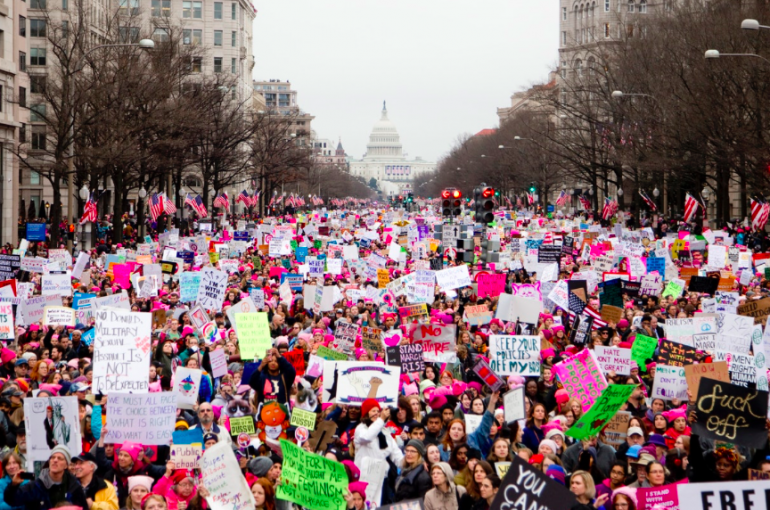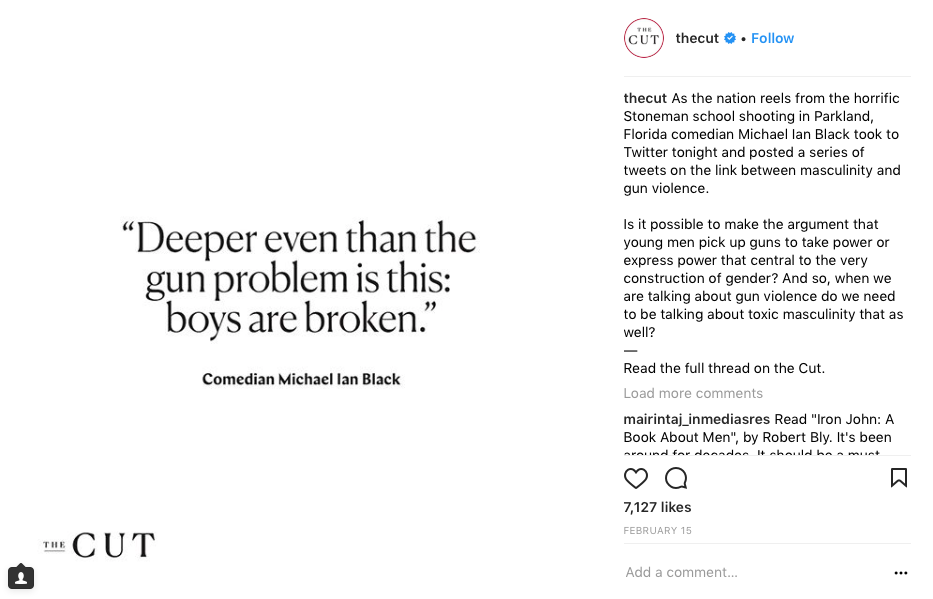What BDG’s Women Have to Say About Progress, Diversity and Power on International Women’s Day

In the past couple of years, we’ve witnessed immense progress for The Women’s Movement. It’s impossible to pinpoint a singular catalyst responsible for sparking recent changes — but one could argue that the 2017 Women’s March in Washington symbolized the beginning of a new era for collective action.
Nearly 80% of BDGs staff are women. Discussions around equality and diversity are a natural part of our 5a7 vernacular, and we consider ourselves very lucky to be surrounded by one another, not to mention the respectful, inclusive men whom we are proud to call our colleagues.
It’s our first year celebrating International Women’s Day as a team and we’ve started two traditions. First, our BDG library: from Sheryl Sandberg’s Lean In to Anne-Marie Slaughter’s Unfinished Business, our new book collection was built with one thing in mind: sharing knowledge, educating each other, and starting a conversation that’s bigger than ourselves and our day-to-day work.
The second tradition? A Slack roundtable where the women of BDG share their insights on a certain issue related to The Women’s Movement.
This year’s prompt: 2017 and 2018 has been a huge year for the women’s movement. In your view, what’s one thing that’s still missing from popular discourse, and what action can we take to make this message heard?
Ixone Isasi, Traffic & Acquisition Manager
The discourse that I’ve mostly been tuned into has been about the salary gap and job hierarchy within businesses. Within this specific conversation, what I’ve really liked to see, is the fact that men are speaking up and supporting us more than ever.
What’s missing right now is a sense of action: what are the steps that we should take to improve the situation, and how are we involving the whole community? Do women with no kids versus women with kids share the same sense of equality? Do women with families experience the same problems in the workforce as those who do not?
Colleen McNamara, Content Director
I spend a really disgusting amount of time on Instagram, and I recently came across a post by one of my favourite magazines, The Cut. It was posted after the Stoneman Douglas School Shooting in Florida, and highlighted a post on Twitter by comedian Michael Ian Black.
His words were as follows: “Deeper even than the gun problem is this: boys are broken. The last 50 years redefined womanhood: women were taught they can be anything. No commensurate movement for men who are still generally locked into the same rigid, outdated model of masculinity and it’s killing us. If you want to hurt a man, the first thing you do is attack his masculinity. Men are adrift and nobody is talking about it and nobody’s doing anything and it’s killing us.”
Black’s insights are important because they remind us that the implications of gender inequality are multifaceted — and impact every single aspect of human interaction. If we don’t truly understand how constructions of gender influence the meanings of femininity and masculinity, we’ll never fully negotiate the tensions that divide women from men.
Feminism needs to strengthen the inclusiveness of its discourse to create a reimagined and modern understanding of masculinity. We need to create language systems, symbols and communities that make men feel welcome in our conversations, and inspire them to discuss their interpretations and experiences of gender inequity.
Caren Carrasco, Senior Partner
There has been a lot of focus of the movement with regards to men, and how the interaction between women and men in different aspects: leadership, compensation gap, harassment, etc. But there has been less of a discussion on women’s real internal struggles, the day-to-day conflicts: confidence, negotiation, imposter syndrome; things that are more common for a woman to experience 24/7. We need to highlight these ongoing struggles just as much as we address the big cases.
So what action can we take to improve? We need to be present for other women. Being present requires women opening up and sharing their experiences, and coaching those who are going through similar problems. It’s hard to find women that are mentors, while male mentors are easier to find. We need more platforms to enable women to discuss the problems they experience every day. These might be small conflicts they constantly need to overcome, and they might think it’s “just them”, but others experience it, too.
Elba Nino, Digital & App Marketing Manager
This may not be a very popular opinion but I honestly believe that what we’re missing is the action. At this point, we have just started to identify the problem. We now have a big chunk of society (especially men) starting to understand the situation women experience every day: the inequality, the oppression, the unfairness, etc. We now see powerful and less powerful women organizing to expose that — which is a great start. However, we’re still missing life-changing actions from most institutions. We still have rapists winning Oscars, domestic abusers being hired at the White House, women, in general, being paid less than men for the same job, without even mentioning what’s still happening to women in less developed countries.
Actions are not only big movements. Actions are even the way men talk to women at meetings. Fewer interruptions and a change of mentality when a woman speaks are small actions that make a difference.
Helene Fleischer, Content Marketing Specialist
What’s missing in today’s discourse is where women’s issues and race issues intersect. Intersectionality in feminism is a concept that is not new but has been gaining traction in the mainstream as of recently. In Canada, a full-time working woman makes 74 cents on every man’s dollar for equal work. However, Black, Aboriginal/First Nations, and Latina/Hispanic women all make under 70 cents.
What can we do to fix this? Recognize when you are in a position to mentor, hire, promote, or empower women who may have been disenfranchised by systemic oppression.
Marie Hamelin, CRM Specialist
All of the recent changes that have happened seem like so much more than what everyone was expecting to happen. And yet, it’s still not enough. There’s so much left to do, and I feel that it starts with changing perceptions. How women are perceived, how we talk about feminism and how women are characterized. I was (and still am) often put into situations, with friends (both men and women) of my age, where I would talk about feminism and be characterized as the “feminist” — but not in a good way.
There is so much change circulating — and yet there is still a misunderstanding of the word itself that impacts the progression of the feminist movement. When in reality, all this means is that we are seeking for equality of the sexes. We’re not here to overcome men, just to have equal rights and opportunities as men. My hope is that we will soon be able to stop wasting our energy in justifying the movement and start putting those efforts into actually making changes. And this starts in part with our mothers, sisters, daughters, fathers, brothers, sons and friends who so proudly call themselves Feminists.



